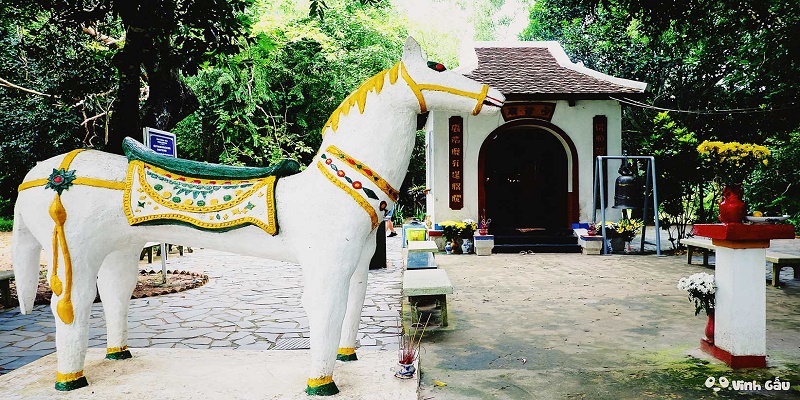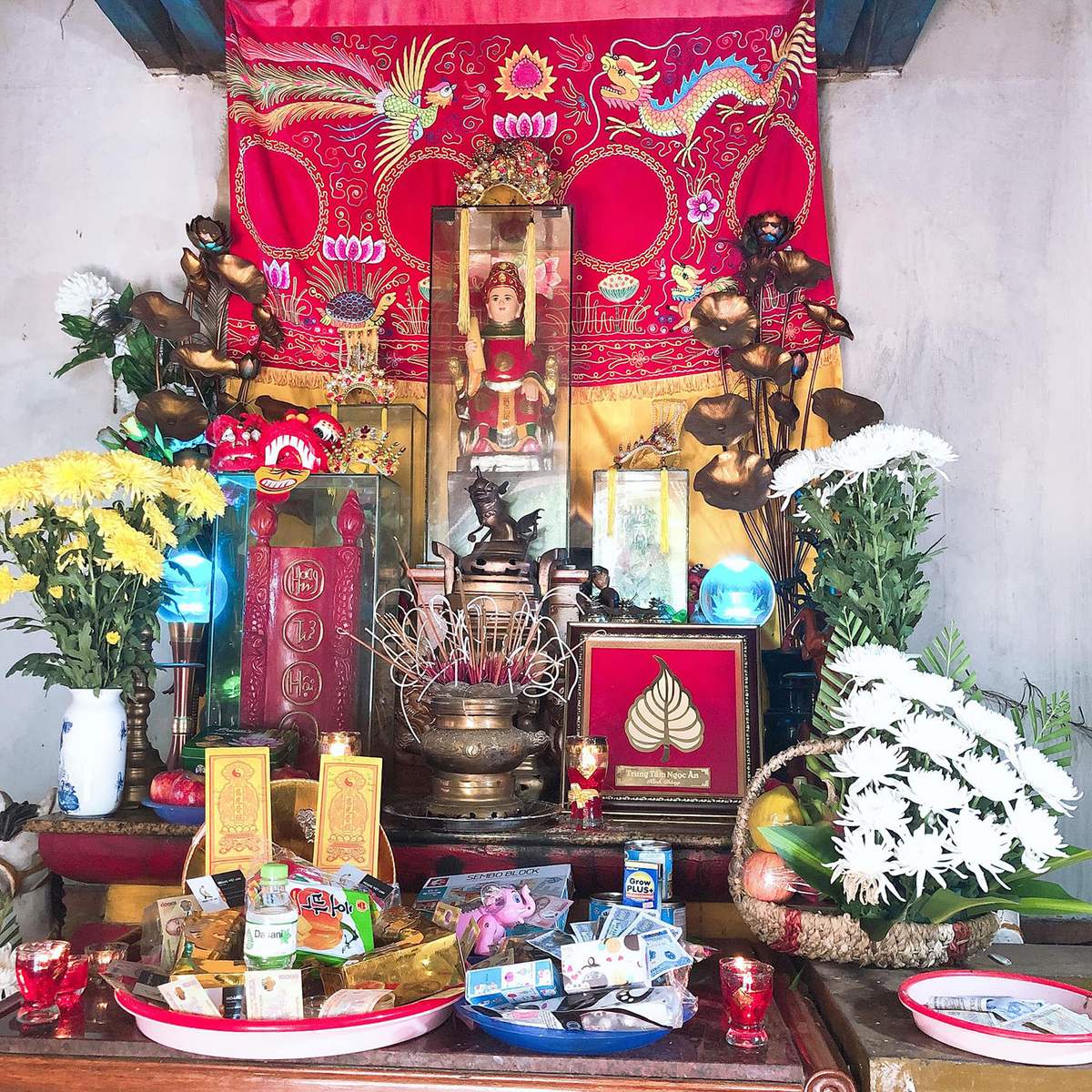Mieu Cau Hoang Tu Cai
Prince Cai Shrine, also known as Miếu Cậu, is a small but spiritually significant shrine located on Con Dao Island, Vietnam. It is dedicated to Prince Cai (Hoàng Tử Cải)—the son of Lady Phi Yen and Lord Nguyen Anh—whose tragic story has become part of the island’s deeply rooted spiritual and cultural heritage.
1. Historical Background
According to local legend, Prince Cai was the son of Lady Phi Yen (a concubine of Lord Nguyen Anh, later Emperor Gia Long). During the late 18th century, when Nguyen Anh fled to Con Dao to escape the Tay Son rebels, he sought to ally with foreign forces. Phi Yen, concerned about national sovereignty, advised against it.
Angered by her interference, Nguyen Anh imprisoned Phi Yen and, in a fit of rage, ordered that their infant son—Prince Cai—be thrown into the sea. He later died and was buried by local villagers, who mourned his tragic fate.
To honor his innocent spirit, the locals built Miếu Cậu, a shrine where people come to pray for children’s health, protection, and peace.
2. Architecture and Design
Prince Cai Shrine is a modest structure surrounded by greenery. While small in scale, it exudes a sacred and peaceful ambiance.
-
The shrine has a simple altar dedicated to the young prince, usually adorned with:
-
Candles, incense, and fruit offerings
-
Toys or sweets brought by parents on behalf of their children
-
-
The surrounding area is calm and shaded, ideal for quiet reflection.
The simplicity of the shrine reflects its deep emotional and spiritual significance rather than grandeur.
3. Spiritual and Cultural Significance
Miếu Cậu holds a special place in the hearts of the local community. It is believed that:
-
Prince Cai’s spirit is pure and gentle, and especially protective of children.
-
Many parents visit the shrine to pray for:
-
Their children's health and safety
-
Fertility or help with raising families
-
Emotional comfort and blessings for family harmony
-
Though not widely known across the country, this shrine is very meaningful to those who live on or visit Con Dao.
4. Annual Traditions and Offerings
While there is no fixed national festival for Prince Cai, many visitors bring personal offerings, especially:
-
Sweet treats, milk, and toys for the spirit of the child
-
Clothes or items meant for children
-
Messages of love and prayer written by hand
Locals also sometimes combine their visit here with nearby Phi Yen Temple, as part of a spiritual journey honoring both mother and child.
5. How to Visit
-
Location: Near An Hai village, very close to Phi Yen Temple, Con Dao District, Ba Ria - Vung Tau Province
-
Opening hours: Open all day, especially busy on weekends and spiritual occasions
-
Entrance fee: Free
-
Visitor tips:
-
Bring offerings if you wish to pray for a child or family
-
Dress respectfully and maintain a quiet demeanor
-
Can be visited together with nearby spiritual landmarks such as Chùa Núi Một and Miếu Bà Phi Yến
-
6. Conclusion
Though small and simple, Prince Cai Shrine (Miếu Cậu) is a deeply emotional and spiritual place for locals and visitors on Con Dao Island. It tells a touching story of innocence, loss, and remembrance, and continues to be a place where people seek peace, protection, and blessings for their loved ones. For anyone visiting the island’s spiritual heritage sites, Miếu Cậu offers a uniquely heartfelt experience.



